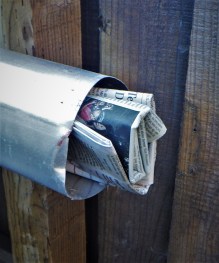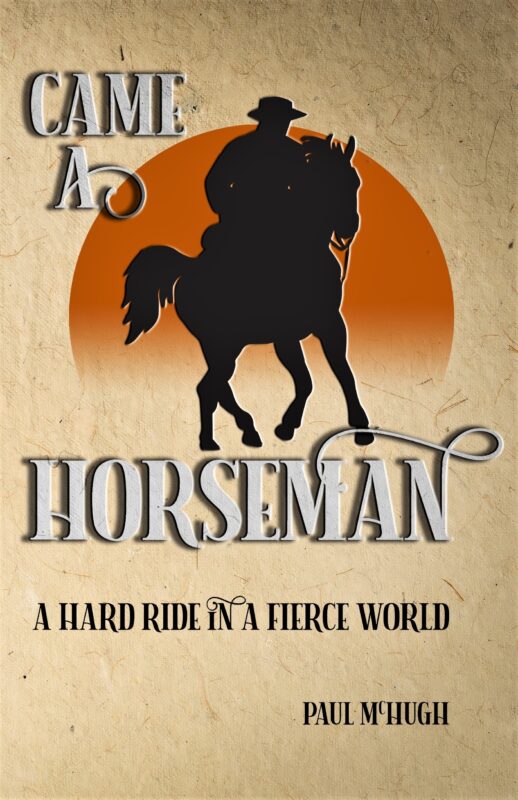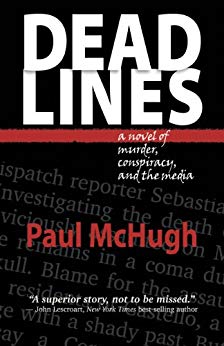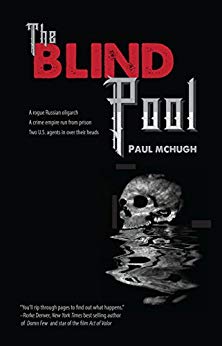The main library in the small town where I grew up

All we humans, without exception, swim our whole lives long through a sea of stories.
Stories are ultimate content for the human mind. Stories are an imaginative response to existence. Stories offer us an organizing principle, provide us with a grid for co-locating experiences, and give us a frame of reference for understanding them.
Stories tell us who we are, where we’re heading, and offer clues to explain why we ever were gripped by a zany notion to go that way in the first place…
I used to feel that I was trapped in a story-poor environment. Untrue, yet that percept still sparked an enduring drive to discover new stories I could turn to fresh uses, as well as a passion to create for myself whatever I could not find.
Just Call Me Swamp-Boy
I grew up in a rural arm of the Everglades. Our two main sources of stories back then were the black-clad preachers who would fulminate or woo their flocks from Sunday pulpits, and a tiny public library. Use of either wellspring, though, demanded a half-hour-long trip to town. And even the mecca of our library couldn’t really swing wide its doors to me till I learned to read. Yet I still lusted for all the tales I’d been informed that that limestone block building cradled.
Compared to the data and info freshets of modern days, stories readily available to us at our remote home way out in the woods were then in scant supply. We had no TV. Our only radio was crap, the exterior antenna was hard to put up high enough to receive well through the treetops; only a couple of signals came in with clarity. Besides that, there were very few neighbors close by for me to talk to, and none my age.
News I Could Use

However, a small metal tube did hang below a mailbox, at the far end of a long driveway that snaked out through the woods. Within that tube, delivered by an unseen hand, early upon sunrise of each day, a folded newspaper magically appeared.
From age five on, it was my chore as soon as I awakened to run barefoot through the woods, clad only my pajama bottoms. I’d fetch that paper, and bring it to my father so he could scan the headlines while sipping from his cup of Postum and munching down a bowl of Grape-Nuts.
One mid-summer day, my dad seemed absolutely riveted by what he was reading. Noting his fascination, I asked him what the story was about. He astonished me – since I generally found him remote and unresponsive – by not just summarizing this story, but reading it aloud to me in its entirety. The tale was grim and tragic: the sinking of the SS Andrea Doria.
Breaking: Big Boat Goes Blub!

The Doria, pride of Italy’s fleet of ocean liners, was approaching New York in heavy fog at the same time a smaller Swedish liner, the Stockholm, was departing. Befuddled communications and lousy navigational choices made these ships smash into each other at a combined speed of some forty knots. Amid this violent collision, Stockholm’s ice-breaking prow pierced the side of the Doria all the way to her keel, tearing open watertight compartments and killing scores of passengers. But though the fatally gashed Doria had to be abandoned, adoption of swift and shrewd rescue measures meant that only 46 people perished, while more than 1,600 passengers and crew were handily rescued.

So the titanic effort mounted by rescuers produced a decidedly non-Titanic result.
One survivor was a “miracle girl,” Linda Morgan, who was catapulted from her cabin on the Doria to land alive on the deck of the Stockholm, suffering only a broken arm – while a half-sister and her step-father, who’d been sleeping near her, were both instantly slain.
Eleven hours after the accident, the heavily listing Doria capsized and sank.

OK, the scene changes!
Spellbound, Grade One
It’s about six weeks later, and I’ve started school. My first-grade teacher, Sister Berta, wants us kids to cure our shyness and begin to get to know one other, so she launches an exercise. Each child is asked to go up to the front of the class to tell the other kids a story. We’re to assume the hot seat in alphabetical order, thus I’ve got lots of time to try to figure out whatever it is that I wish to say.

One kid talks about the new puppy his family has just adopted. A girl talks about a vacation her family took the previous summer. So it goes. Finally, it’s my turn. I proceed to tell them all that I can recall about the sinking of the Andrea Doria. Which is actually quite a bit. Heaps of details about this tragic event have attached themselves to cells of my largely empty youngster’s brain like lint to Velcro. So can I recap the nautical epic more or less in full, just as it was related to me by my dad.
As I wind up, I seek to assess how I’m doing, and I note that everyone in the room has been staring at me for some time with their mouths open, including my new teacher. “Hmm,” I think to myself. “Well, hey. Me getting into a story-telling gig could be some pretty cool shit.”
Or I jam a few clumps of other words and thoughts together, but to that same general effect.
I don’t grasp the mission yet in full, but it’s at that moment that I choose to use my one-and-only precious human life to tell stories.
A Tale-Teller’s Trail

It takes me quite a few years, however, to figure out how I really wish to go about it. First, I decide I’ll be a priest, and join that cadre of black-robed raconteurs informing their hopefully rapt (and captive) audiences about holy Bible stories, plus what these venerable yarns might signify. After six l-o-n-g years in a minor seminary, though, I decide if I am going to be a priest, it won’t be for the Holy Roman Catholic and Apostolic Church. Turns out, I perceive a wee problem in taking any vow of obedience to a hierarchy that I’ve keenly observed in action. So next, I try to be a poet. And after that, a self-taught journalist.

And now, decades deep into this process, I seem to be settling into my role as a novelist. Well, guess we’ll see how that ends up!
En route, my perception and evaluation of the phenomenon of story-telling has steadily deepened and widened. We learn about love from the soap operas in love songs and films and books. We learn how to be good consumers from those itsy-bitsy sermonettes in ads and commercials. (The hero is the product. And the plot? Well, you’ve got a key role. See, them pitchmen wanna sell you folks deodorant, but first they need to make you way fearful of bein’ stinky.) Politicians vie to pitch themselves and their careening careers via competing stories. Listen up! My candidate might save you, but this other guy shall certainly see you damned, so be very careful how you pick. And as for those master narratives still avidly marketed by the world’s major religions? Well, such tales are so huge and encompassing that they require a massive buy-in from you to even function, an energizing factor also known as “faith.” Which is not to say that such stories are untrue. They’re as true as you bother to make them. And that’s rather the point.
The Pact of Our Pack
All of which goes to underscore my core message here: that story-telling is a sacred task. It may have been woefully traduced over time, but it doesn’t need to stay that way. It can be renewed… by you. This job’s especially tough for novelists, since we need to model life and, indeed, the entire universe, while also trying to point out something interesting, new, and useful about this shifty dimension where we’re all struggling to forge our lives. Not the easiest of assignments!
But the good news is that human story-telling has grown into a collective chore. We would-be prose troubadours do have predecessors, and we also have companions. If fortune smiles upon us, we might even have followers. To illustrate the scale of this joint enterprise, and to finish up, I’ll provide a quartet of quotes from thinkers and scribblers whose pithy lines have become my leading lights, a few bright stars perched on high in a narrative firmament, if you will.
“Horse sense is that thing a horse has that keeps it from betting on people.”
– W.C. Fields
“It’s ridiculous to divide people into good and bad. All people are either charming or tedious.”
– Oscar Wilde
“I believe I have found the missing link between animals and civilized man. It is us.”
– Konrad Lorenz
“Be pitiful, for every man is fighting a hard battle.”
– Rev. John Watson
(A variation of this quote is oft ascribed to Plato. I’m positive Plato could’ve said something like it if he’d managed to think of it first, but then he probably would’ve gone on to credit this saying to Socrates. Homage to the master, you know…)








